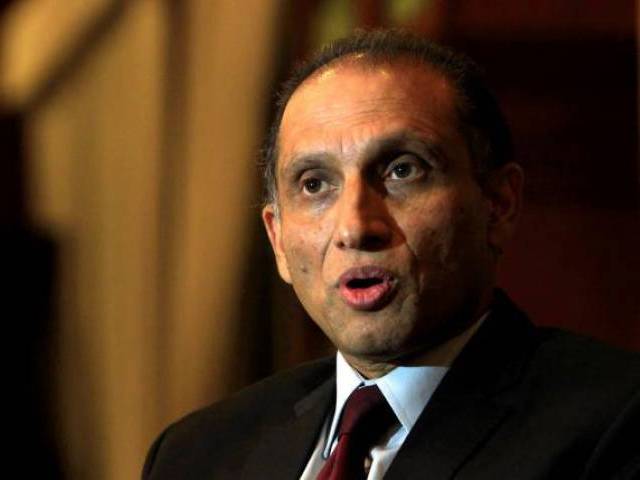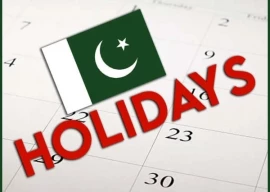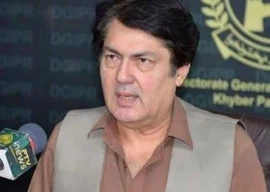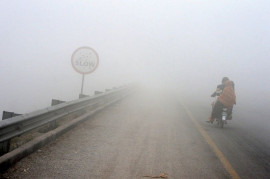
This was the crux of Pakistan’s Ambassador to the United States Aizaz Ahmad Chaudhry speech on Pakistan’s perspective on the changes taking place in South Asia and the prospects for peace and stability in the region. He was speaking in Washington DC on Wednesday at an event hosted by the Carnegie Endowment for International Peace.
He said that when Pakistan and the United States worked together they have always succeeded while when they have not they almost certainly failed.
He reiterated that the civil-military leadership of Pakistan is united in the fight against terrorism and will not allow any militant safe havens in the country.
Afghanistan lens
The Pakistani ambassador doubled down on the need to ensure lasting peace in Afghanistan as it is in the best interests of both countries.
He said that instability in the neighbouring country becomes a catalyst for terrorist attacks in Pakistan with porous borders.
Chaudhry said that the United States and Pakistan have the same goal in war-torn Afghanistan.
The United States has spent more than 680 billion dollars to sustain efforts in the country.
He said that both countries worked together to take into custody 600 al Qaeda operatives in the past.
Chaudhry said that a comprehensive approach is needed to fight terrorism, not only counterterrorism efforts.
He said that 125 acts of terrorism in Pakistan have been perpetrated by militants from Afghanistan.
Speaking on the situation in South Asia, he said the situation is uncertain with India and China having an uneasy peace while tensions between India and Pakistan are on the rise.
He said that Afghanistan has also become increasingly destabilised. Chaudhry said that there are major question marks over the Iran nuclear deal which was painstakingly achieved after ten years.
Coming to Pakistan, he contextualised the major talking points into four issues which included the fight against terrorism, economic situation, youth bulge and continuity of democracy.
US ready to address Pakistan's legitimate concerns, Mattis assures Gen Qamar
The Pakistani ambassador said that since 2009 the state apparatus has used all of its resources to rid the country from the scourge of terrorism.
He said that the militants have a simple but powerful narrative that it is their holy duty to fight the infidels, however, there is nothing holy about shedding blood of innocents.
"It is imperative to address the mindset of these militants," he added.
"After the Army Public School attack in which 137 innocent children belonging to military families who were fighting in tribal areas were targeted by terrorists as revenge their narrative was exposed at a huge cost," he said.
"After this, even the far right of the political fringes of Pakistan agreed that these militants were barbarians," he said.
The military moved into North Waziristan to root out the terrorists
He said that many of these terrorists went to Afghanistan where they can easily operate while others went into the urban areas.
Hence, we launched Operation Radd-Ul-Fassad to root them out.
Consequently, we lost 6,000 soldiers, as well as, 23,000 civilians in the process.
Secondly, with a drop in terrorist acts in the country and an improved law and order situation, the economic situation has picked up. The biggest source of investment is China with the CPEC project. Corporate America has also been rushing to invest in Pakistan after the project was rolled out.
"We have now reached the zero load shedding mark which is a big achievement for us," he added.
He said that there has also been a rise in infrastructure investment with the construction of roads and highways in Balochistan with 1,100 kilometres of roads built.
"The youth bulge is also a big asset for our country with 207 million young people with about 58 per cent below the age of 30," he further added.
COAS briefs top commanders on military diplomacy after Mattis visit
"This is a big asset for us if we can ensure that they are skilled," he claimed.
He underscored the need to guarantee that the democratic process is uninterrupted for 11 years now.
He highlighted the need to inculcate transparency and good governance in the process.
[/fbvideo]
1734689719-0/jlo-diddy-(3)1734689719-0-405x300.webp)
1734954517-0/Untitled-(90)1734954517-0-165x106.webp)

1734953966-0/Untitled-(89)1734953966-0-165x106.webp)
1734953256-0/blake-justin-(1)1734953256-0-165x106.webp)


1734941776-0/Untitled-design-(9)1734941776-0-270x192.webp)

1734954312-0/Express-Tribune-(8)1734954312-0-270x192.webp)






1734778885-0/Untitled-(10)1734778885-0-270x192.webp)






COMMENTS
Comments are moderated and generally will be posted if they are on-topic and not abusive.
For more information, please see our Comments FAQ